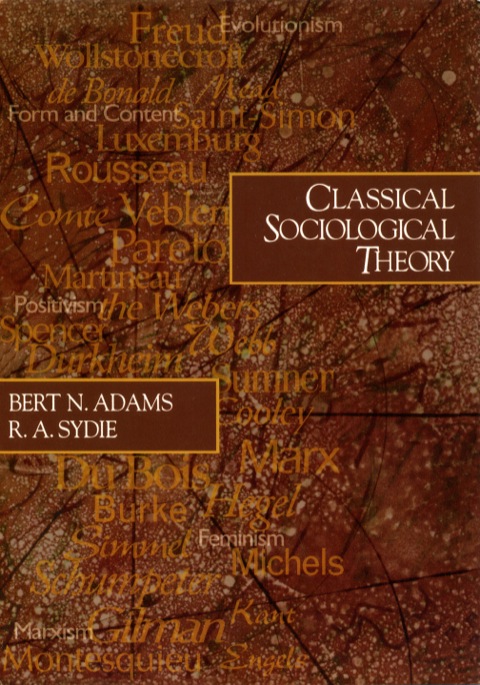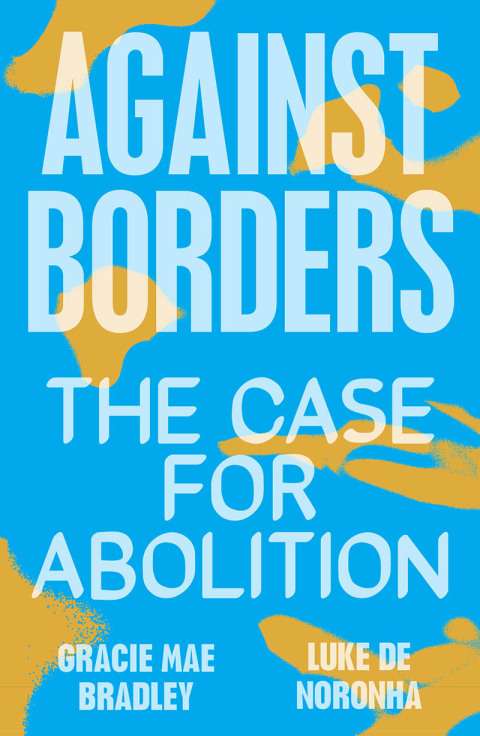Description
Efnisyfirlit
- Detailed Contents
- Preface
- A Note to Students
- Section I: The European Roots of Sociological Theory
- Chapter 1 – The Origins of Sociological Theory
- The Contours of Sociological Theory
- Deductive and Inductive Reasoning
- Ideology and Objectivity
- Sociological Subjects
- Research Traditions
- The Philosophical Precursors of Sociology
- Tradition and Modernity
- The Philosophes and the Enlightenment
- Political Revolutions
- Subjects and Citizens
- Capitalism and Industrial Revolution
- Order and Change
- Science and Ethics
- Final Thoughts on the Philosophical Precursors
- References
- Chapter 2 – Theorizing After the Revolution: Saint-Simon, Comte, and Martineau
- Claude-Henri, Comte de Saint-Simon (1760–1825)
- Saint-Simon’s Central Theories and Methods
- Nature of Society, Humans, and Change
- Class, Gender, and Race
- Other Theories and Theorists
- Critique and Conclusions
- Auguste Comte (1798–1857)
- Comte’s Central Theories and Methods
- Nature of Society, Humans, and Change
- Class, Gender, and Race
- Other Theories and Theorists
- Critique and Conclusions
- Harriet Martineau (1802–1876)
- Martineau’s Central Theories and Methods
- Nature of Society, Humans, and Change
- Class, Gender, and Race
- Other Theories and Theorists
- Critique and Conclusions
- Final Thoughts
- References
- Section II: Conservative Theories
- Chapter 3 – Evolutionism and Functionalism: Spencer and Sumner
- Herbert Spencer (1820–1903)
- Spencer’s Central Theories and Methods
- Nature of Society, Humans, and Change
- Class, Gender, and Race
- Other Theories and Theorists
- Critique and Conclusions
- William Graham Sumner (1840–1910)
- Sumner’s Central Theories and Methods
- Nature of Society, Humans, and Change
- Class, Gender, and Race
- Other Theories and Theorists
- Critique and Conclusions
- Final Thoughts
- References
- Chapter 4 – Society as Sui Generis: Durkheim
- Emile Durkheim (1858–1917)
- Durkheim’s Central Theories and Methods
- Nature of Society, Humans, and Change
- Class, Gender, and Race
- Other Theories and Theorists
- Critique and Conclusions
- Final Thoughts
- References
- Section III: Radical Theory
- Chapter 5 – Radical Anticapitalism: Marx and Engels
- Karl Marx (1818–1883) and Friedrich Engels (1820–1895)
- Marx’s and Engels’s Central Theories and Methods
- Nature of Humans, Society, and Change
- Class, Gender, and Race
- Other Theories and Theorists
- Critique and Conclusions
- Final Thoughts
- References
- Chapter 6 – Marxism Extended: Lenin and Luxemburg
- V. I. Lenin (1870–1924)
- Lenin’s Central Theories and Methods
- Nature of Humans, Society, and Change
- Class, Gender, and Race
- Other Theories and Theorists
- Critique and Conclusions
- Rosa Luxemburg (1871–1919)
- Luxemburg’s Central Theories and Methods
- Nature of Humans, Society, and Change
- Class, Gender, and Race
- Other Theories and Theorists
- Critique and Conclusions
- Final Thoughts
- References
- Section IV: Sociological Theories of Complexity and Form
- Chapter 7 – Social Action and Social Complexity: Max Weber and Marianne Weber
- Max Weber (1864–1920) and Marianne Weber (1870–1954)
- Weber’s Central Theories and Methods
- Nature of Society, Humans, and Change
- Class, Gender, and Race
- Other Theories and Theorists
- Critique and Conclusions
- Final Thoughts
- References
- Chapter 8 – The Sociology of Form and Content: Simmel
- Georg Simmel (18580–1918)
- Simmel’s Central Theories and Methods
- Nature of Society, Humans, and Change
- Class, Gender, and Race
- Other Theories and Theorists
- Critique and Conclusions
- Final Thoughts
- References
- Section V: Sociological Theories of Politics and Economics
- Chapter 9 – Political Sociological Theories: Paretoand Michels
- Vilfredo Pareto (1848–1923)
- Pareto’s Central Theories and Methods
- Nature of Society, Humans, and Change
- Class, Gender, and Race
- Other Theories and Theorists
- Critique and Conclusions
- Robert Michels (1876–1936)
- Michels’s Central Theory and Methods
- Nature of Humans, Society, and Change
- Class, Gender, and Race
- Other Theories and Theorists
- Critique and Conclusions
- Final Thoughts
- References
- Chapter 10 – Economic Sociological Theories: Veblen and Schumpeter
- Thorstein Veblen, 1857–1929
- Veblen’s Central Theories and Methods
- Nature of Society, Humans, and Change
- Class, Gender, and Race
- Other Theories and Theorists
- Critique and Conclusions
- Joseph Schumpeter, 1883–1950
- Schumpeter’s Central Theories and Methods
- Nature of Society, Humans, and Change
- Class, Gender, and Race
- Other Theories and Theorists
- Critique and Conclusions
- Final Thoughts
- References
- Section VI: Other Voices in Sociological Theorizing
- Chapter 11 – Society and Gender: Gilman and Webb
- Charlotte Perkins Gilman (1860–1935)
- Gilman’s Central Theories and Methods
- Nature of Society, Humans, and Change
- Class, Gender, and Race
- Other Theories and Theorists
- Critique and Conclusions
- Beatrice Potter Webb (1858–1943)
- Webb’s Central Theories and Methods
- Nature of Society, Humans, and Change
- Class, Gender, and Race
- Other Theories and Theorists
- Critique and Conclusions
- Final Thoughts
- References
- Chapter 12 – Sociological Theory and Race: W.E.B.Du Bois
- W.E.B.Du Bois (1868–1963)
- Du Bois’s Central Theories and Methods
- Nature of Society, Humans, and Change
- Class, Gender, and Race
- Other Theories and Theorists
- Critique and Conclusions
- Final Thoughts
- References
- Chapter 13 – Society, Self, and Mind: Cooley, Mead, and Freud
- Charles Horton Cooley (1864–1929)
- Cooky’s Central Theories and Methods
- Nature of Society, Humans, and Change
- Class, Gender, and Race
- Other Theories and Theorists
- Critique and Conclusions
- George Herbert Mead (1863–1931)
- Mead’s Central Theories and Methods
- Nature of Society, Humans, and Change
- Class, Gender, and Race
- Other Theorists and Theories
- Critique and Conclusions
- Sigmund Freud (1856–1939)
- Freud’s Central Theories and Methods
- Nature of Society, Humans, and Change
- Class, Gender, and Race
- Other Theories and Theorists
- Critique and Conclusions
- Final Thoughts
- References
- Chapter 14 – Final Thoughts on Classical Sociological Theory
- Nineteenth-Century Sociological Theory
- Dominant Theories and Ideologies
- Radical Theory and Ideology
- Early Twentieth-Century Sociological Theory
- Gender and Race
- Inequality, Progress, and Revolution
- Views of Change
- Ideology, Society, and Human Nature
- Other Theoretical Issues
- Power
- The Self
- Sociological Theory by the 1930s
- References
- Credits
- Index






Reviews
There are no reviews yet.